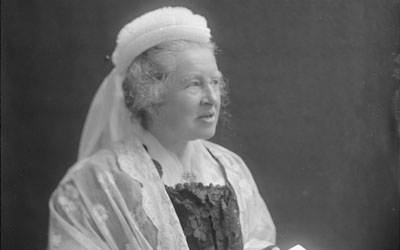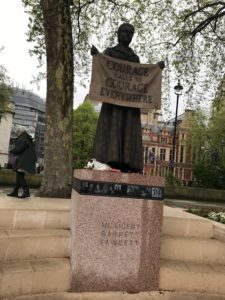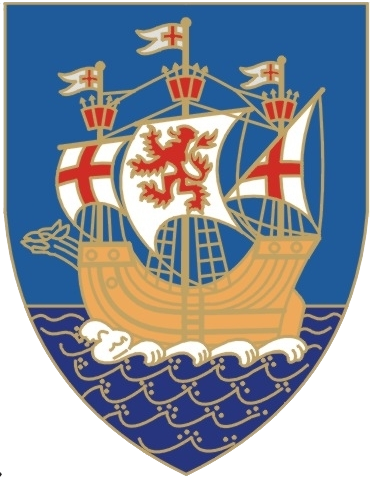Millicent Fawcett
A statue commemorating the life of the suffragist, Millicent Fawcett, has been unveiled opposite Parliament. She campaigned for women’s right to vote during the early 20th Century and is seen as one of the most influential feminists of the past 100 years.
Prime Minister Theresa May paid tribute to the “truly great” campaigner’s “lasting impact” after it was unveiled. The bronze casting, by the artist Gillian Wearing, is the first statue of a woman erected in Parliament Square. Born in 1847, she was a pioneering feminist, intellectual and union leader who campaigned for women’s right to vote
- She was a suffragist – not a suffragette
- She shared the same aims as the suffragettes – the more radical group led by Emmeline Pankhurst – but favoured non-violent protest
- In 1897 she formed the National Union of Women’s Suffrage Societies
- She also played a key role in the founding of Newnham College, the second Cambridge university college to admit women
- In 1902, she led an all-female investigation into the appalling conditions in British concentration camps in South Africa, during the Boer War
- Dame Millicent died in 1929, a year after women were granted the vote on equal terms to men
Elizabeth Garrett Anderson
When Elizabeth Garrett Anderson was elected Mayor of Aldeburgh in 1908 she became the first woman mayor in Britain and a whole series of events were organised to mark the centenary of her death.
Elizabeth Garrett was a daughter of Newson Garrett, a successful Aldeburgh businessman who first developed the Maltings at Snape and was from the pioneering Garrett family in Leiston. As a leader in the social movements of the time Elizabeth played a national role in women’s rights to equality, especially in medicine and education. She was an inspirational woman. Retiring back to Aldeburgh in 1902 she lived with her husband in Alde House, near the Church. In 1908 she became the Mayor of Aldeburgh, the first woman in Britain to be elected Mayor. She died on December 17th 1917 and is buried in Aldeburgh churchyard.
Elizabeth Garrett was the first woman to qualify as a doctor in Britain in 1865, after overcoming opposition from the male medical establishment. In 1872 she opened the New Hospital for Women in London. The famous hospital later moved to the Euston Road and was renamed the Elizabeth Garrett Anderson Hospital after her death. In 1873 she became the first woman member of the British Medical Association, remaining so for 19 years. She helped found and, in due course, became Dean of a medical school for women which later became part of what is now the medical school University College, London . More locally, a major new wing at Ipswich Hospital is named after her.
Elizabeth worked tirelessly with a group of friends to improve the education of women. In 1866 she was the first woman elected to a London school board. Elizabeth was a lifelong friend of Emily Davies who went on to co-found Girton College, Cambridge in 1869. Her sister Millicent co-founded Newnham College in 1875. More recently Michelle Obama made a well-publicised visit in 2009 to the London girls’ school bearing Elizabeth’s name to honour her achievements. From 1866 Elizabeth was a supporter of the women’s suffrage movement, in which her sister Millicent played a leading role.



